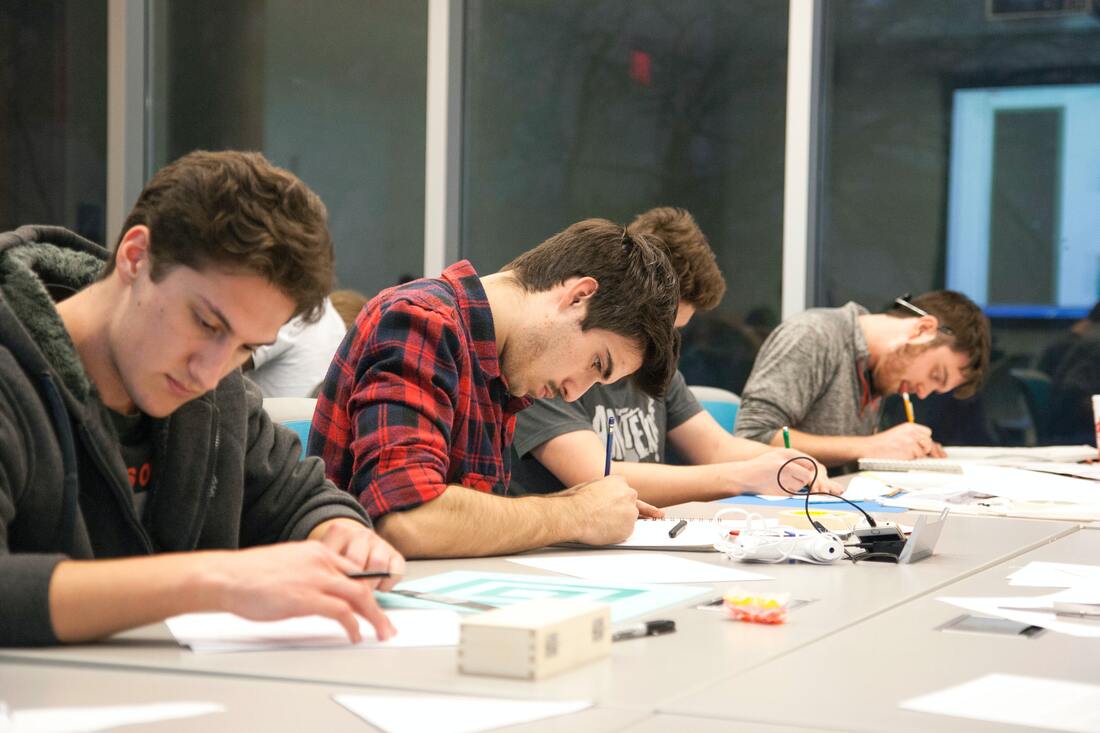STUDYING ALONE AND NOT ALONE
James Thomas
31.7.2020
An extract from You can do more with more, a forthcoming Versatile title.
|
Find a quiet, well-lit space with the light streaming over your left shoulder if you're right-handed, and have some light music streaming from your computer entitled something like Calm music to study by or the gentle sounds of waterfalls and forest creatures, and don't forget a comfortable chair adjusted to the right height, and make sure there are no shopping lists or pictures of your favourite people to distract you, and the room should be at an optimal temperature that won't cause you discomfort, and turn your phone and doorbell off, and make sure your partner is in no position to interrupt you, and heaven forbid that there should be any dripping taps to get under your skin.
Well, that's just the sort of tripe that blogs and books on study and concentration recommend. Any such advice written under those conditions is bound to be bland. Whoever thought that study needed to be hermetically sealed [def] so that the mind does not get infected with ideas, inspiration or good ole fashioned fun? Heaven forbid! I'm being ironic here, of course.
I typically write in airport lounges, in cafes, in bed with my partner lying naked at my feet reading Proust and Kundera (in French and Czech respectively though not simultaneously). On trains I manage to ignore the incessant announcements while squinting through the filthy windows. I write at home in the middle of the night, sleeping poorly because of too much alcohol or too little. And in parks observing teenagers teaching each other to skateboard and to play the guitar to the accompaniment of little kids squealing with delight riding on swings, slippery dips and their dogs. The above paragraph contains a good deal of hyperbole [def], which by definition, means that I have exaggerated a few points to make an impression. Nevertheless, a warm, secure place where you are not hungry or irritated can be as valuable as multi-sensory stimulation to your learning. You must know what works best for you. Whatever the circumstances of your study, try to make the process active, creative and product-oriented. At the end of a study session, you should be able to add a comment to your list of learning goals that indicates what progress you made in achieving one or some of them. And your learning journal will have just got a little bit richer. Studying alone Studying alone can be as stimulating as doing any of your favourite activities alone. You have time to think and ponder and check and write and draw and reflect as you turn the pages of this book. These students have got their heads down and their noses to the grindstone, studying alone. Studying not alone
Studying not alone can be as stimulating as doing any of your favourite activities not alone. It takes a bit more organisation to get together with someone, and you do need to plan what you are going to do and how you are going to do it. What and how will depend on who and on how often. If you regularly work together with the same person or people, your study sessions will develop a rhythm. A study buddy is someone who is studying the same subject and is at about the same level as you. Wikihow.com has a page on asking someone to become your study buddy which includes a few nice tips. |
You might also study a foreign language with someone who is a native speaker or an advanced non-native speaker. You might be paying for this or paying in kind, which means providing a good or service instead of cash. When I was a piano teacher, a hippy student offered to knit me a sweater for the term's fees. I accepted gladly as she not only knitted it, she shore the sheep and spun the wool, even asking what ply I'd like. I wore that sweater for years.
A more traditional payment in kind between language students sees one of you helping someone learn your language while they help you with theirs. This is called tandem learning. There are many web pages on tandem learning and it even has a Wikipedia page. Tandem learning requires some commitment. Firstly, you and your tandem partner need to have enough in common to have things to talk about so that you look forward to meeting each other. Maybe you both enjoy Proust and Kundera. It is most effective when your communication skills are around the same level. If one of you is a near beginner, the conversations will be slow and frustrating. Possibly non-existent. But since you are reading this book, this situation is unlikely. 
Tandem learning sessions work well when you have something specific to do. Arriving for a cup of tea and asking how your tandem partner's weekend was week after week will not stimulate much discussion, rather it will become predictable and boring. You might agree to meet in a café in a park that has forest creatures and teenagers teaching each other to skateboard while little kids squeal with delight as they ride their dogs.
One of the things that native speakers usefully do is point out a mistake, especially fossilized errors, i.e. a piece of language you have been misusing for years. It is not great for your self-confidence to find out that such things are part of foreign language repertoire, but at least you'll know what your homework is. Or your partner will. Fossilized errors are language habits and can be difficult to reform. But sometimes, the correction can be quite a shock and you'll never make that mistake again. This is a good reason for taking notes during your tandem sessions. Between sessions you can email each other in your target language, i.e. the language you are learning. In your email, you might like to show off using a piece of language that you have learnt or corrected in your recent tandem sessions. And your emails are likely to contain bits of language that you can both scrutinize at your next meeting. Native speakers cannot always explain why something is a mistake, and this is a limitation that you both agree on, perhaps tacitly. However, once you have worked through Chapter 3, you will be well-equipped to help your partner in matters of vocabulary and the grammar of vocabulary, at least. |




